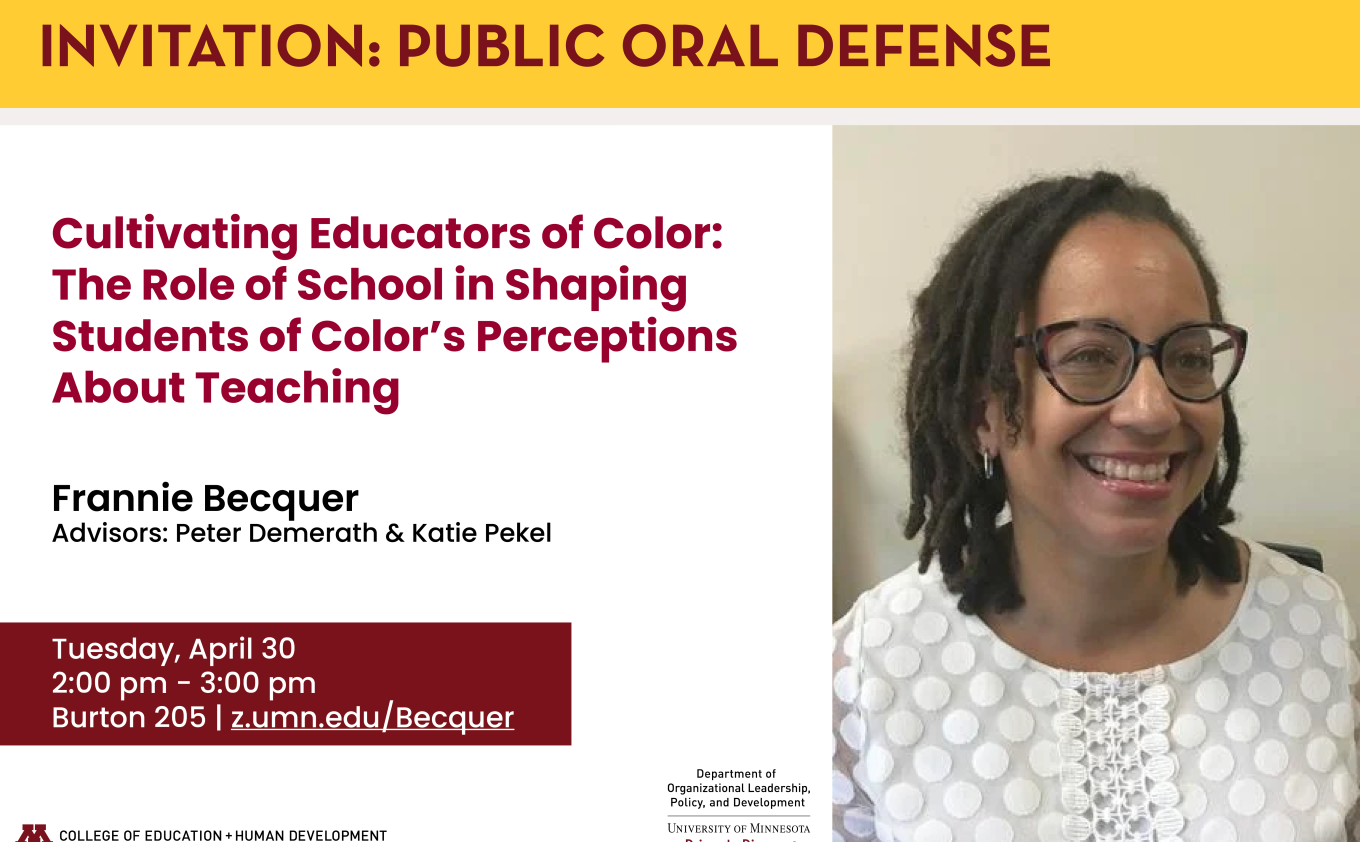Events
Public Oral Defense: Frannie Becquer

Cultivating Educators of Color: The Role of School in Shaping Students of Color’s Perceptions About Teaching
Advisors: Peter Demerath and Katie Pekel
Seeking to enhance efforts toward diversity in the teaching profession, this study used a heuristic methodology to explore how the lived experiences of high school students of Color participating in an education pathways high school course shaped their perceptions of the teaching career. Critical race theory (CRT), critical whiteness studies, and culturally relevant pedagogy (CRP) and their interrelatedness provide an understanding of the role of race in K–12 education. Whiteness is a pervasive background that shapes educational experiences in the United States. CRT sits within whiteness as a tool to analyze how race functions in schools, and CRP’s focus on empowering students requires the CRT context to be fully effective. The findings of this study reveal challenges and motivations shaping the aspirations of students of Color who are considering teaching careers. While students reported feeling excluded due to implicit biases and societal stigmas, they also found belonging through supportive teachers and diverse peers. Students expressed being driven by social justice to become teachers and were discouraged by the lack of support they experienced as students and the societal devaluation of the profession. Consequently, this study highlights the need for a diverse and supportive education system. Implementing culturally proficient practices, dismantling negative perceptions, and providing information about teaching careers can help students of Color change their perceptions of teaching as a career.
Burton 205 or online via Zoom
Photographs taken at the event may be used in University of Minnesota print and online publications, promotions, or shared with the CEHD community.
The University of Minnesota shall provide equal access to and opportunity in its programs, facilities, and employment without regard to race, color, creed, religion, national origin, gender, age, marital status, familial status, disability, public assistance status, membership or activity in a local commission created for the purpose of dealing with discrimination, veteran status, sexual orientation, gender identity, or gender expression. All are welcome.
The University of Minnesota campuses were built on the traditional homelands of the Dakota and Ojibwe, and scores of other Indigenous peoples who have walked on these lands from time immemorial. It is important to acknowledge the peoples on whose land we live, learn, and work as we seek to improve and strengthen our relations with our tribal nations. We also acknowledge that words are not enough. We must ensure that our institution provides support, resources, and programs that increase access to all aspects of higher education for our American Indian students, staff, faculty, and community members.